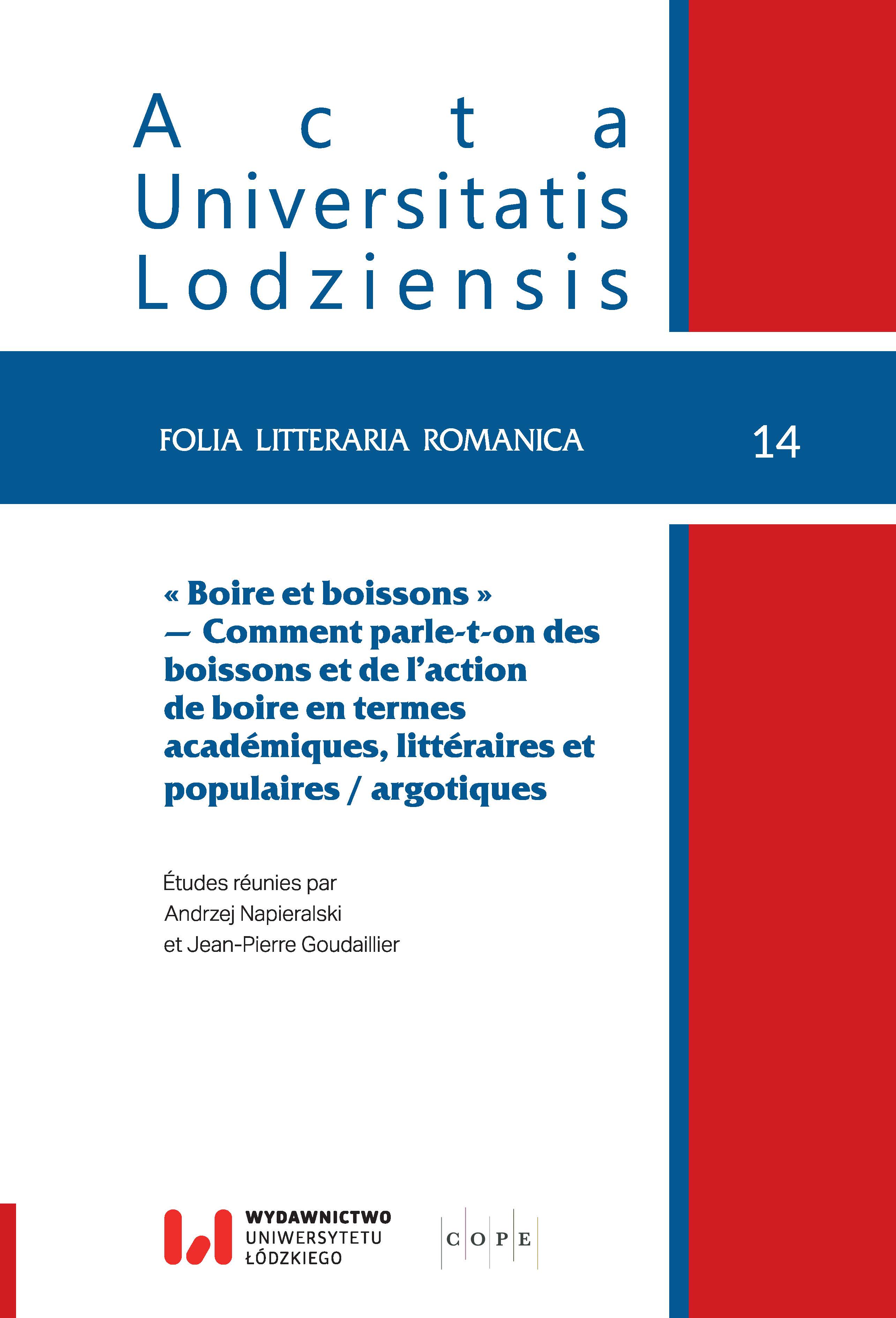Drinking in Youth Language: A Study of the Language of Young People in Poland
DOI:
https://doi.org/10.18778/1505-9065.14.08Keywords:
sociolinguistics, lexicology, slang, argot, youth speech, drinkingAbstract
Youth language is a variant of the ‘standard’ language and as such is used by peers and is part of a diastratic variation of the language. The use of a specific sociolect by young speakers of a given language is a sign of belonging to a group where age is the determining factor. It is true that the use of certain lexemes is conditioned by the linguistic situation in which people find themselves (diaphasic variation), but it is no less true that certain lexical forms are more used by young people, especially in verbal exchanges with other group members. This paper will aim at presenting the so-called ‘young’ vocabulary that touches on the field of drinking (the names of drinks, the types of alcohol, the verbs used to talk about the action of drinking). The corpus herein will be based on the lexicon that was found on a site for young speakers (www.miejski.pl), which represents the universal language of the youth. The results obtained will be classified according to the lexicogenic processes responsible for the creation of new lexical forms (form, meaning, borrowing). The analysis will deal with contemporary lexical neological forms, such as the words ‘dżudżitsu vodka’ (words ‘vodka’ and ‘jujitsu’), ‘zibol’ (a ‘person who is drinking’; onomatopoeia ‘zib’, i.e. the noise produced during the ingestion of a liquid), ‘tankować’ (‘fuel up’; metaphor), or ‘sztela’ (‘booze’; borrowed from the Silesian speech).
Downloads
References
Bourdieu, Pierre, « Vous avez dit ‘populaire’ ? », in Actes de la Recherche en Sciences Sociales, 1983, nº 46, p. 98-105
Google Scholar
DOI: https://doi.org/10.3406/arss.1983.2179
Boyer, Henri (éd.), Les Mots des jeunes. Observations et hypothèses, Langue française, 1997, no 114, Paris, Larousse
Google Scholar
François-Geiger, Denise, L’Argoterie : recueil d’articles, Paris, Sorbonnargot, 1989
Google Scholar
François-Geiger, Denise, Goudaillier, Jean-Pierre (éd.), Parlures argotiques, Langue française, 1991, no 90, Paris, Larousse
Google Scholar
DOI: https://doi.org/10.3406/lfr.1991.6189
Goudaillier, Jean-Pierre, Comment tu tchatches !, Paris, Éditions Maisonneuve & Larose, 2001
Google Scholar
Labov, William, Le Parler ordinaire, Paris, Les Éditions de Minuit, 1983
Google Scholar
Podhorná-Polická, Alena, Fiévet, Anne Caroline, « Argot commun des jeunes et Français Contemporain des cités dans le cinéma français depuis 1995 : Pratiques des jeunes, reprises cinématographiques et enjeux pour la francophonie », in La Francophonie ou l’éloge de la diversité, éd. Michaël Abecassis, Gudrun Ledegen, Karen Zouaoui, Cambridge Scholars Publishing, 2011, p. 77-125
Google Scholar
Sablayrolles, Jean-François, Les Néologismes. Créer des mots français aujourd’hui, Les Petits Guides de la langue française, Le Monde, no 29, Paris, Éditions Garnier, 2018
Google Scholar
Downloads
Published
How to Cite
Issue
Section
License

This work is licensed under a Creative Commons Attribution-NonCommercial-NoDerivatives 4.0 International License.













